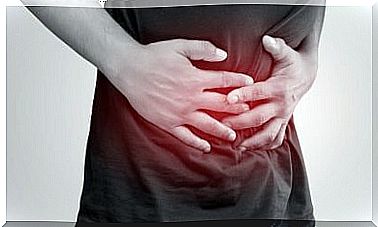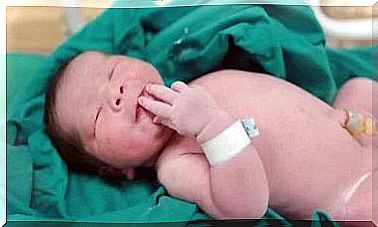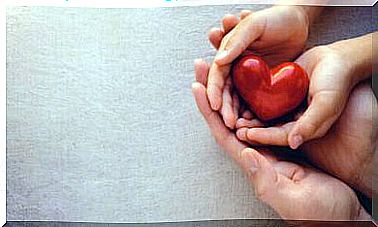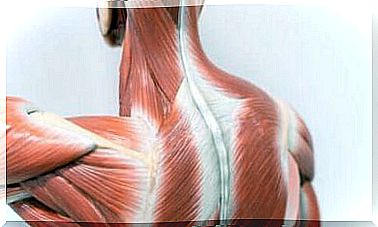How Do Thoughts Turn Into Illness?
Our mind is so powerful that it allows it to influence our physical state. In recent years we have seen how the door between the body and the mind opens, demonstrating that these areas of our body are more related to thoughts than we realize.
All of us have felt sick at some time and had the feeling that with this physical illness our mind was in a kind of prison.
We felt our minds becoming more lazy and clumsy than usual; closing itself both to the reception of stimuli and the production of its own thoughts.
On the other hand, the latest research says that a state of mental well-being is associated with a good physical state; be it the real state or the perception we have of it.
In other words, we are more likely to get diseases when our minds are unbalanced. In other words, anxiety or depression are mental disorders that can contribute to the appearance of unwanted physical symptoms.

How does the transformation process take place?
Let’s think for a moment about moments when we feel anxious. Our heart starts beating harder and faster than normal, our hands can start to shake and we easily start to sweat.
All these symptoms appear because from our mind we are putting our body into operation; that is, we are changing our constants in much the same way as when we started exercising.
However, there is a very big difference: the exercise itself does not occur. And so the body can hardly provide an outlet for all that energy it has started to produce, and this results in enormous pressure on our nervous system.
The veins and arteries that supply our muscles have barely begun to dilate, and the heart is sending out a lot of blood.
What then happens to our thoughts?
Let’s imagine that a huge number of cars start driving along a highway, and that highway suddenly ends, and traffic has to be diverted to a secondary road. The result is, of course, the production of a collapse.
The same happens in our body.
By analogy, we have a heart sending cars and more cars and the rest of the body is unable to receive them. If this situation lasts for a short time or is not very intense, it will all be a mere event.
However, when the intensity of cardiac work is too great or lasts for a long time, serious damage can occur.
On the other hand , one of the most evident connections is the one that relates the functioning of our cognitive system with the strength of our immune system.
When our mind does not work well, it is normal to turn against the body and internally potentiate any attack that originates from the outside.
In this sense, our mind is like a computer and our immune system is the antivirus. If our computer is malfunctioning, it will disable this antivirus, making things much easier for any threat.
Furthermore, this weakening occurs not only during the period of stress, but also when it disappears.
What role does our brain play?
We cannot forget that at the base of our ideas and thoughts there is a chemical correlation in our biological system. And a fundamental structure of this correlation is the hypothalamus, which plays a very important role in our hormonal regulation.
The peculiarity of this small structure is that it is extremely reactive to our thoughts, whether they are in the form of recall, in the form of interpretation of present stimuli, or in the form of anticipation of future events.
What influence does our behavior have?
So far we’ve talked about how the mind can directly influence our body, but we shouldn’t forget about something no less important: the influence produced through our behavior. We will give an example:
All people have stages in life that are not especially joyful and motivating. In fact, although we have never experienced depression, some of the sensations we experience during these periods are similar to those produced in this illness, although they are usually not as intense or as continuous.
Well, at such times, one of the things we do is to let go of some aspects of our personal care. In this sense, one of the first aspects that is usually affected is diet.
We sacrifice those foods that we like least, and that are the healthiest, for others that give us greater pleasure.
Why do we do this?
It’s a question of balance.
We try to obtain through the taste the pleasure that seems to us lost in other aspects of our life.
Unfortunately, that sitcom image of the girl clutching a bucket of ice cream after a breakup is real.
In short, this is our wrong way of making the hypothalamus provide the lost sense of well-being. It is our behavioral way of preventing negative thoughts from appearing. An act, without a doubt, very negative for the health of our body.
However, the loss of this balance is not the only reason for us to neglect our diet. Another important reason is that, with sadness, there is usually a lack of motivation.
The reasons for taking care of ourselves, which once seemed so important, can now take second place to what caused the sadness and allowed us to allow it to settle in us.
Actions that were once routine seem to be more difficult now. So what we do is try to simplify our routine and instead of going to the grocery store when we leave work, we choose to order a pizza, as this requires less effort.
the other side of the coin
So far we’ve talked about how negative thoughts weaken us, but there’s also the other side of the coin.
Several studies carried out with sick people have shown that a positive mental attitude has significantly improved their prognosis.
This may be due to their direct action through body biochemistry or through the action of other disease control instruments, such as physical exercise or eating care.
In this way, we encourage you to take care of your mental health as much as possible so that you will take care of your body. Definitely worth it!








